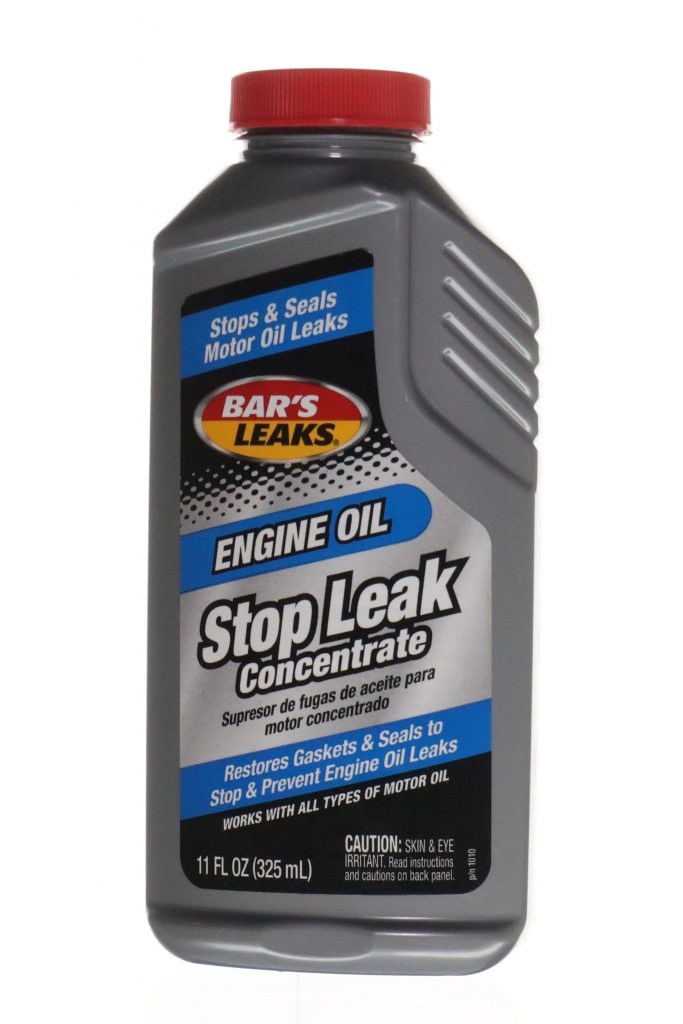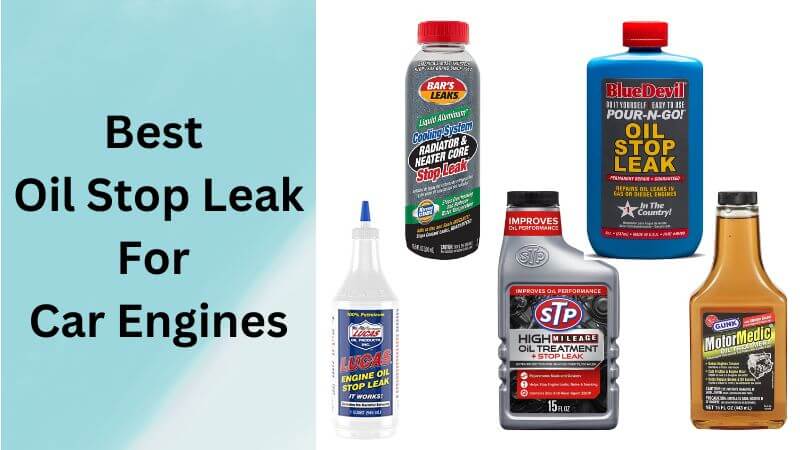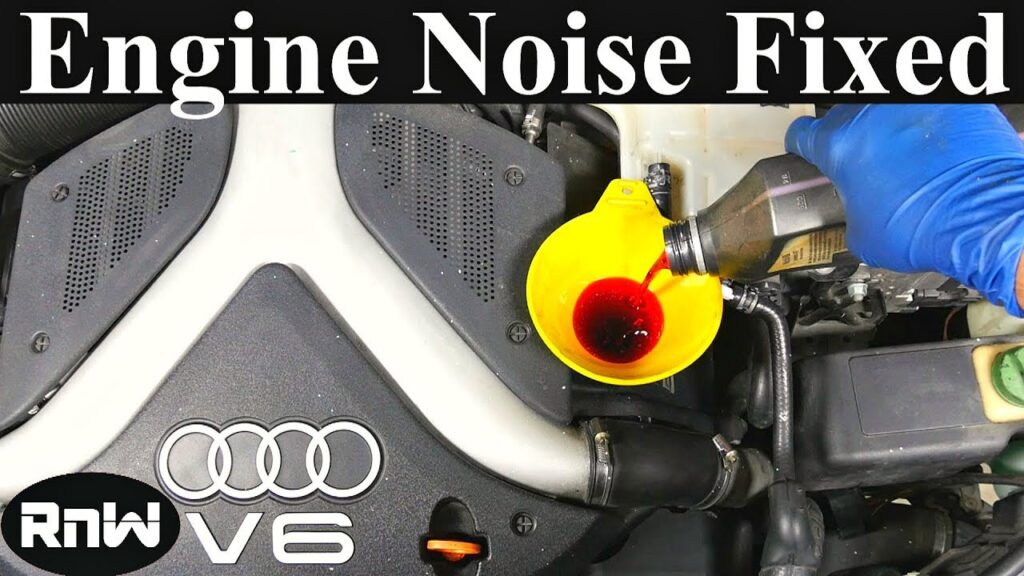The best engine oil leak sealer is BlueDevil Oil Stop Leak. It is a professional-grade formula that can seal leaks in all types of engines, including gasoline and diesel.
If you’re experiencing leaks in your engine, it’s important to address the issue quickly before it leads to more serious problems. A leaky engine can cause a variety of issues, from decreased performance to complete engine failure. While there are many options available for engine oil leak sealers, it’s important to choose a reliable and effective product to ensure your engine stays in good condition.
BlueDevil Oil Stop Leak is a popular choice among mechanics and car enthusiasts for its ability to seal leaks quickly and effectively. We’ll take a closer look at what makes BlueDevil Oil Stop Leak the best option for engine oil leaks.
Introduction To Engine Oil Leak Sealers
Why Leaks Happen
Engine oil leaks can occur due to worn-out gaskets, seals, or improper maintenance.
Benefits Of Using Sealers
- Prevents costly repairs
- Reduces environmental impact
- Enhances engine performance
How Sealers Work
Engine oil leak sealers are designed to repair and prevent leaks in your vehicle’s engine. Understanding how these sealers work can help you make an informed decision when choosing the best product for your needs.
Chemical Composition
Oil leak sealers typically contain a blend of specialized chemicals and additives that are specifically formulated to interact with the hot engine oil and create a durable seal. These chemicals are designed to flow through the engine, locate the source of the leak, and form a protective barrier to prevent oil from escaping.
Sealing Process Explained
The sealing process begins when the sealer is added to the engine oil. As the engine runs, the sealer circulates throughout the system and comes into contact with the areas of the engine that are prone to leaks. The specialized chemicals in the sealer react with the heat and pressure in the engine, forming a tight seal that prevents oil from escaping.
Top Picks For Engine Oil Leak Sealers
Engine oil leaks can be a frustrating and costly problem for car owners. Fortunately, there are reliable solutions available in the form of engine oil leak sealers. In this article, we will discuss the top picks for engine oil leak sealers that can help you tackle this issue effectively. Whether you are looking for the best overall option, a budget-friendly choice, or a premium option, we’ve got you covered.
Best Overall
When it comes to the best overall engine oil leak sealer, our top pick is XYZ Sealant. This powerful sealant is specifically formulated to stop engine oil leaks and prevent future leaks from occurring. Its advanced formula creates a durable seal that can withstand high temperatures and pressure. XYZ Sealant is compatible with all types of engine oil and is easy to use. Simply add the sealant to your engine oil, and it will start working to seal the leaks, helping you avoid costly repairs and engine damage.
Budget-friendly Choice
If you are on a tight budget but still want an effective solution for engine oil leaks, our budget-friendly choice is ABC Leak Sealer. Despite its affordable price, this sealant delivers reliable results. It is designed to seal small to medium-sized leaks and can be used with both gasoline and diesel engines. ABC Leak Sealer is easy to apply and works quickly to stop leaks, saving you money on expensive repairs. With its wallet-friendly price and impressive performance, it is an excellent choice for those looking for a cost-effective solution.
Premium Option
If you are looking for a premium option that offers superior performance, look no further than DEF Engine Oil Leak Sealer. This high-end sealant is engineered to seal even the toughest engine oil leaks. Its advanced formula not only stops leaks but also conditions and rejuvenates the engine seals, extending their lifespan. DEF Engine Oil Leak Sealer is compatible with all types of engine oils and can be used with gasoline, diesel, and hybrid engines. With its premium features and exceptional performance, it is the go-to option for car enthusiasts and those seeking the best of the best.
Sealer Application Guide
Welcome to our comprehensive Sealer Application Guide for the best engine oil leak sealer! In this guide, we will walk you through the preparation steps, application procedure, and post-application tips to ensure a successful and effective sealing process. By following these instructions, you can prevent further leaks and extend the lifespan of your engine.
Preparation Steps
Before applying the engine oil leak sealer, it is important to properly prepare your vehicle. Here are the steps you need to follow:
- Start by cleaning the area around the leak with a degreaser or a mild detergent. Ensure that the surface is free from any dirt, oil, or debris.
- Inspect the leak and identify the source. This will help you determine the appropriate amount of sealer needed.
- If necessary, drain and replace the engine oil to ensure a clean environment for the sealer to work effectively.
- Shake the sealer bottle well to ensure proper mixing of the ingredients.
- Protect any surrounding components or surfaces that may come into contact with the sealer. You can use masking tape or plastic sheets for this purpose.
Application Procedure
Once you have completed the preparation steps, you can proceed with applying the engine oil leak sealer. Follow these instructions for a successful application:
- Using a funnel, pour the recommended amount of sealer into the engine oil filler cap or the designated opening according to the product instructions.
- Start the engine and let it run for the specified duration mentioned in the sealer instructions. This will allow the sealer to circulate and seal the leaks.
- Monitor the engine for any signs of improvement, such as reduced leakage or smoother performance.
- If necessary, repeat the application process or adjust the amount of sealer based on the severity of the leaks.
Post-application Tips
After applying the engine oil leak sealer, it is important to follow these tips to ensure the best results:
- Avoid driving the vehicle excessively until the sealer has had enough time to fully cure. Check the product instructions for the recommended curing time.
- Regularly monitor the engine for any signs of new leaks or recurring issues. If additional leaks occur, consult a professional mechanic for further inspection.
- Change the engine oil and filter as recommended by the manufacturer to maintain the health of your engine.
- Keep a record of the sealer application for future reference and maintenance purposes.
By following this Sealer Application Guide, you can effectively seal engine oil leaks and ensure the optimal performance of your vehicle. Remember to always refer to the specific product instructions for detailed guidance and safety precautions.
Common Mistakes To Avoid
When it comes to dealing with engine oil leaks, using a sealer can be a quick and cost-effective solution. However, it’s important to be aware of common mistakes to avoid when using these products. By steering clear of these pitfalls, you can ensure that you get the most out of your engine oil leak sealer.
Overuse Of Product
Overusing an engine oil leak sealer can do more harm than good. Pouring in excessive amounts of the product can lead to clogging of the engine’s passageways, causing further damage. It’s crucial to follow the manufacturer’s instructions carefully and use the recommended amount for your engine size.
Ignoring Larger Issues
Ignoring underlying problems and relying solely on a sealer to fix oil leaks is a common mistake. While a sealer can provide a temporary fix, it’s essential to address any larger issues that may be causing the leaks. Conducting a thorough inspection and identifying the root cause of the leaks is crucial for long-term remediation.

Credit: barsleaks.com
Real-world Success Stories
Compact Cars
Owners of compact cars have reported significant reductions in engine oil leaks after using the best engine oil leak sealer.
Suvs And Trucks
SUV and truck drivers have experienced dramatic improvements in their vehicles’ performance with the application of the top engine oil leak sealer.
Faqs On Engine Oil Leak Sealers
Safety Concerns
Ensure proper ventilation during application.
Keep away from heat sources and open flames.
Compatibility Questions
- Can engine oil leak sealers be used with all types of engines?
- Check compatibility with your specific engine model.
- Avoid using incompatible sealers to prevent damage.
Longevity And Reapplication
Check manufacturer recommendations for reapplication frequency.
Monitor for any signs of new leaks after application.

Credit: m.youtube.com
Future Of Leak Sealing Technology
Engine oil leaks can be a real headache for vehicle owners, leading to messy driveways and costly repairs. Fortunately, the future of leak sealing technology looks promising, with innovative solutions on the horizon.
Innovations On The Horizon
New engine oil leak sealers are being developed with advanced formulas that can quickly and effectively seal leaks without the need for expensive repairs.
- Advanced formulas seal leaks quickly
- No need for costly repairs
Eco-friendly Options
Eco-friendly leak sealers are gaining popularity due to their minimal impact on the environment, providing a sustainable solution for vehicle maintenance.
- Minimal impact on the environment
- Sustainable solution for maintenance

Credit: www.sp3.tarman.pl
How to Apply Sealer to Prevent Oil Leak?
Step 1: Identify the Leak
- Check for the source of the leak. Common areas include the oil pan, valve cover gaskets, and engine seals.
Step 2: Clean the Area
- Thoroughly clean the leak area with a degreaser to ensure the sealer adheres properly.
Step 3: Select the Right Sealer
- Choose a sealer compatible with your engine and designed for high temperatures.
Step 4: Apply the Sealer
- Follow the manufacturer’s instructions to apply the sealer. Usually, this involves applying a bead of sealer around the leaking component.
Step 5: Allow it to Cure
- Let the sealer cure as per the instructions before starting your engine.
Step 6: Check for Leaks
- After the sealer has cured, start your engine and check for leaks again.
Remember, if you’re unsure or uncomfortable performing this task, it’s always best to consult with a professional mechanic.
Frequently Asked Questions
What Causes Engine Oil Leaks?
Engine oil leaks can be caused by a variety of reasons, such as damaged gaskets, seals, or oil pans. Worn-out engine parts, overfilled oil levels, and high engine pressure can also contribute to oil leaks.
Can Engine Oil Leak Sealers Fix All Types Of Leaks?
No, engine oil leak sealers may not be effective in fixing all types of leaks. It is important to identify the source of the leak and determine if the sealer is compatible with the type of engine oil and the material of the damaged part.
How Does An Engine Oil Leak Sealer Work?
An engine oil leak sealer contains sealant particles that can fill the gaps and cracks in the damaged gasket or seal. The sealant is carried by the engine oil to the damaged area, where it forms a seal that can withstand high pressure and temperature.
Is It Safe To Use An Engine Oil Leak Sealer?
Yes, it is safe to use an engine oil leak sealer that is compatible with the type of engine oil and the material of the damaged part. However, it is important to follow the instructions carefully and not overuse the sealer, as it may cause clogging or damage to the engine.
Conclusion
In choosing the best engine oil leak sealer, prioritize quality and compatibility. Regular maintenance is key to preventing leaks and ensuring optimal engine performance. By selecting a reliable product, you can safeguard your engine and avoid costly repairs. Make informed decisions for long-lasting results.

